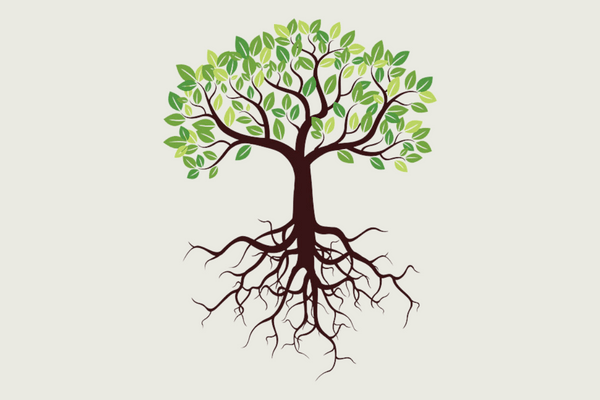Functional Practitioners – Wellbeing Detectorists
Whole Person Care
In the UK and in other parts of the in the economically developed world we are seeing a pattern of chronic health problems such as diabetes, dementia, cardiovascular disease, obesity growing at a phenomenal rate.
Mainstream healthcare systems tend to ‘manage’ these conditions and they’re not really being treated at source. It’s estimated that up to 80% of chronic problems are almost always treatable or reversible with lifestyle changes[1]. However, this isn’t discussed with patients when they are first diagnosed.
Integrative Medicine is an inclusive model of healthcare that focuses on whole person care and moves away from the dualistic idea of conventional versus alternative.
u(Functional Bringing conventional, lifestyle and holistic medicine together is done through the holistic consultation which uses ‘wellness’ as a guiding principle – i.e. looking for ways to optimise health and reduce (or prevent) disease. The holistic consultation can itself be therapeutic – time and undivided attention is given, and the patient is really listened to. The practitioner also finds it helpful as more than what the patient is saying, they can pick up cues and signals unconsciously offered by the patient.
Within this ‘wellness’ model we can find two interesting concepts. Firstly, the idea of the ‘intelligent body’. If we give space to our body to listen, we can understand what’s really going on. Secondly, ‘purpose’ – that which gives our lives meaning and a good measure of self-reflection can support us when we are dealing with disease. This is what is meant by ‘spirit’ when we talk about, ‘mind, body, spirit’ rather than faith.
Integrative Medicine focuses on treating the whole person, not the illness, and uses a personalised and patient-centred approach to wellbeing. It’s less interested in naming a disease and instead looks to what creates health. By exploring the mind-body influence on wellbeing and taking into consideration emotions and lifestyle factors, illness can be reduced and, in some cases, even disappear.
Integrative Medicine is evidenced based is delivered by qualified and experienced healthcare professionals. It encourages self-care and advocates lifestyle and holistic approaches to work alongside conventional medicine.
Lifestyle – teaching proven techniques and supporting behaviour change for improved health and wellbeing, for example through Nutrition, Sleep, Movement (exercise), Nature, Breath Work and Mindfulness.
Holistic – linking physical health with psychological, social and spiritual influences for health and wellbeing. Using whole person approaches to manage and prevent disease, for example: Traditional Chinese Medicine and Acupuncture, Ayurveda, Medical Homeopathy, Craniosacral Therapy, and Body Work.
A Holistic doctor of any specialty will talk to you about what you can do to give your body what it needs for optimal health.
Functional Medicine
Within Integrative Medicine there are a myriad modalities – of which functional medicine is one – each looking at the ‘how’ and ‘what’ of ill-health.
Functional medicine goes a step further than other Integrative Medicine approaches in that it also looks at ‘why’ and examines the root cause of illness.
It’s rooted in science and evidence yet it retains a patient-focus through the holistic consultation. The aim is for the functional practitioner and patient to work in partnership to explore the underlying causes and promote wellness. The functional practitioner takes an in-depth look at the patient’s background and ‘life story’ and may also want to test and analyse a range of factors, including genetics, digestion, immune system, hormones, environmental exposures (for example through testing blood, urine, or saliva).
To fully understand the patient’s story, functional practitioners use a timeline to drive conversations forward; it helps to make sense of things that have been going on in someone’s life and how they may have contributed to disease or ill-health.
These may be to do with lifestyle, relationships, stress, trauma and/or environmental factors, but functional medicine doesn’t play the blame game. Often there are things that we have absolutely no control over. Once aware of what the patient has experienced or been exposed to, functional practitioners can start to address imbalances in their health.
Functional practitioners use the analogy of a tree when it comes to health. For the tree to flourish and be healthy the roots and the soil need to be supported. And when the tree isn’t healthy, you look for answers in the roots and soil. Diet and lifestyle can be compared to the roots and the systems of the body are the branches.
The functional medicine tree acknowledges the interconnectedness of all inner body functions. The functional practitioner is looking for clues and explores the clinical imbalances that give rise to symptoms. They then look into the root causes, i.e. environmental factors, lifestyle and genetic trends that are affecting wellbeing.
There is so much going on in our bodies at any one time and everyone is completely unique in the way that the body’s processes work together. By understanding the full picture and the patient’s ‘story’, the functional practitioner can better understand what might be caused by – or causing – something like chronic inflammation, something we see a lot of in clinic.
+++++
We have two functional practitioners in our Holistic Doctor team here at NCIM – Dr Sally Bramley (Functional Medicine practitioner) and Dr Penny Kechagioglou (Functional Health Coach). Do get in touch if you’d like to find out how they can help you on your journey to wellness.
[1] Willett, W.C., Koplan, J.P., Nugent, R., Dusenbury, C., Puska, P. and Gaziano, T.A., 2006. Prevention of chronic disease by means of diet and lifestyle changes. Disease Control Priorities in Developing Countries. 2nd edition.

